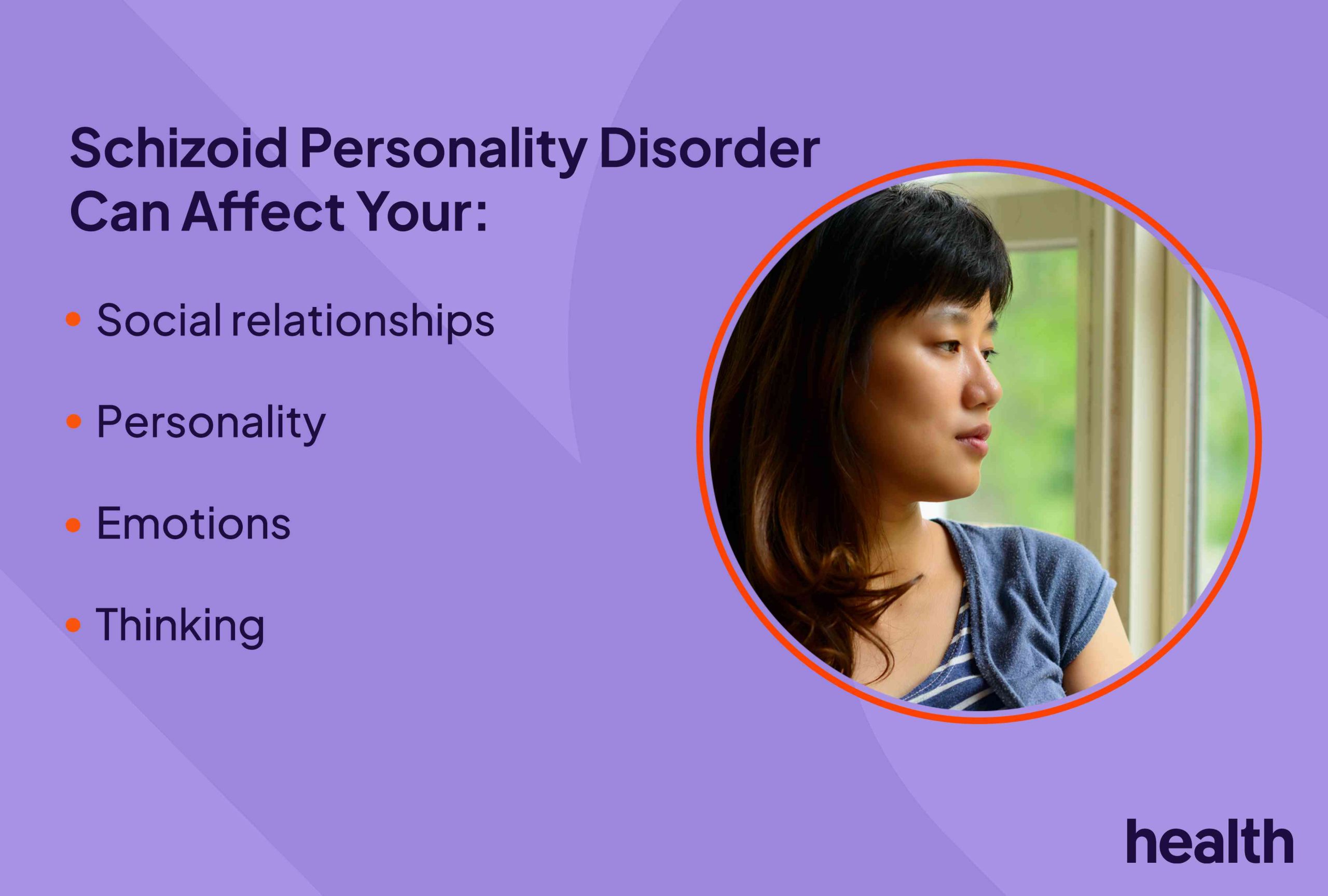Schizoid personality disorder is a mental health condition characterized by a pervasive pattern of detachment from social relationships and a restricted range of emotional expression. Individuals with this disorder often prefer solitary activities1 and have little interest in social interactions.
Symptoms of Schizoid Personality Disorder:
- Detachment from Social Relationships: Individuals with schizoid personality disorder typically avoid close relationships and prefer solitary activities. They may seem indifferent to the opinions of others and have little interest in social norms or conventions.
- Restricted Range of Emotional Expression: They may appear emotionally cold, distant, or detached. They may have difficulty expressing emotions and may seem indifferent to praise or criticism.
- Limited Interest in Sexual Experiences: Reduced interest in sexual experiences.
- Lack of Close Friends: Difficulty forming and maintaining close relationships.
- Indifference to Social Norms and Conventions: They may disregard social norms and conventions, appearing aloof or eccentric.
- Pleasure in Few Activities: Limited interest in activities or hobbies.
- Emotional Detachment: They may seem unaffected by social cues or emotional situations.
Causes of Schizoid Personality Disorder:
The exact causes of schizoid personality disorder are not fully understood. However, genetic and environmental factors may play a role. Some theories suggest that it may be related to a combination of biological and psychological factors, such as genetic predisposition, early childhood experiences, and neurotransmitter imbalances.
Treatment of Schizoid Personality Disorder:
Treatment for schizoid personality disorder can be challenging, as individuals with this disorder may be reluctant to seek help. However, psychotherapy, particularly cognitive-behavioral therapy (CBT), can be beneficial. CBT can help individuals develop social skills, manage anxiety, and improve their overall quality of life. Medication, such as anti-anxiety or antidepressant medication, may be used to address specific symptoms, but it is generally less effective than therapy.
It’s important to note that while schizoid personality disorder can be a challenging condition, with appropriate treatment and support, individuals can learn to manage their symptoms and improve their social interactions.



